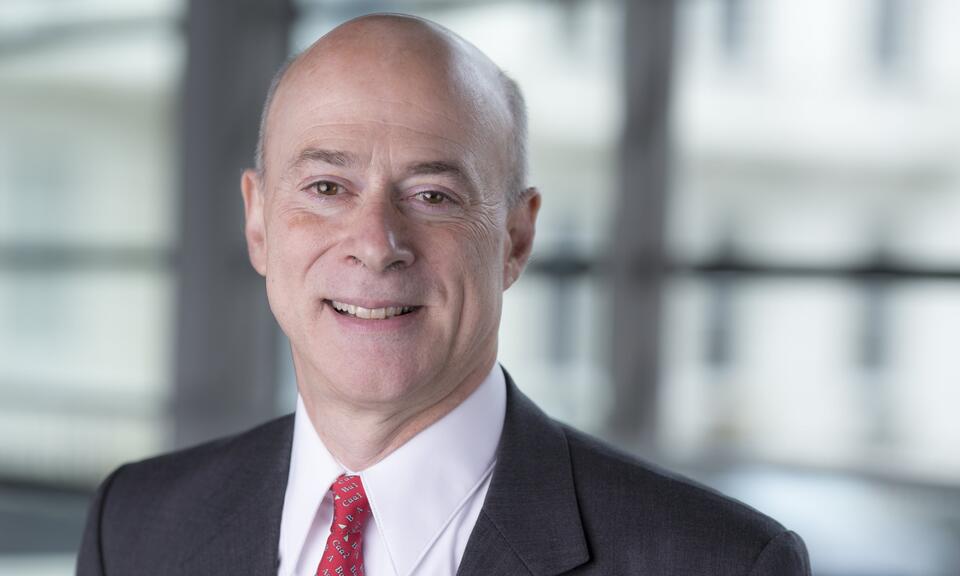
Published
Key topics
Professor Franklin Allen tells us about his decades of research into the Chinese financial system and the main challenges facing the finance sector today
The “economic miracle” performed by China since the Communist Party took over the country in 1949 is staggering. In just 70 years, the country has transformed from an isolated, impoverished nation into one with an economy that is already significantly larger than the US in Purchasing Power Parity terms (PPP) and tipped to overtake it by 2030 in terms of market exchange rates.
Professor of Finance & Economics Franklin Allen, who acted as Interim Dean of the Business School for one year from September 2023, has devoted much of his recent research to this phenomenal success. Through a series of papers looking at the Chinese stock market, the country’s financial institutions and financial systems more widely, he is trying to understand “one of the most successful growth stories in history”.
“This is an interest that started quite a long time ago in the early 2000s,” he says. “China had grown a lot by 2000 but nothing like it did over the next 20 years. Today, if you use PPP, it’s the biggest economy in the world by about 25 percent.”
Between 2000 and 2021, China’s GDP soared from USD 1.2 trillion to USD 18 trillion, and it now accounts for around 18 per cent of the global economy. The speed of this economic growth has come as a surprise to many because China doesn’t operate in the same way as other major economic powers, such as the US, notes Professor Allen.
Before the 2008 financial crisis, it was widely believed that, for an emerging country to establish a successful economy, it should follow a set of recommendations known as the Washington Consensus. But these neoliberal policies, which included limiting state involvement in the economy and advocated for the free market, were not wholly adopted by China.
“The notion that if emerging countries put in place good laws and good institutions, like in the US and Europe, then they would be very successful doesn’t fit with China’s story,” Professor Allen says.
Green finance
Beyond his work on the Chinese economy, as Executive Director of the School’s Brevan Howard Centre for Financial Analysis, Professor Allen is responsible for strengthening ties with other disciplines, including engineering and computational finance. The Centre’s research focus, which spans financial stability and financial regulation, comparative financial systems and designing new financial structures, also includes environment protection, and Professor Allen believes dealing with green finance is an important challenge for the sector.
“There seems to be a desire among many investors, particularly in Europe but increasingly in the US and elsewhere, to give financing to green firms,” he says, adding that the problem with this is the difficulty in defining “green” and how to measure it.
“Typically, green finance has a bad reputation because of what people loosely refer to as greenwashing. There are a lot of things which you could claim has something to do with green finance but don’t really do any good in terms of combatting climate change or even comply with the Paris Agreement.”
It is the responsibility of finance academics, he says, to look at how to make green finance compliant through instruments, such as green bonds, that make the pay off on the bonds contingent on acting to improve climate change. This means that if a firm doesn’t reduce its CO2 emissions, for example, it must pay a lot more on the bond than if it succeeds.
Future leaders
But it isn’t only having the right tools, the finance sector also needs the right people to come up with groundbreaking ideas. Professor Allen argues that to successfully develop green financial policies, the sector will need to attract young talent who may otherwise be tempted to take up careers in tech or entrepreneurship.
“Over the past 15 years or so, the sector’s been shrinking, and banks have been laying people off. At some point that will come to an end, and they’re going to have to start recruiting in a major way to ensure they hire the brightest and best.”
As a member of faculty at Imperial Business School, an integral part of Professor Allen’s work is teaching the world’s future business leaders – something he considers “a real pleasure”. And this positivity is certainly appreciated by his students. In an interview with Poets&Quants magazine, Business School student Joanne Long named Professor Allen as one of her favourite professors, describing him as “considerate, always articulating concepts in a clear manner and willing to answer our questions no matter how small it is in a patient and kind way.”
Professor Allen is looking forward to this side of the Business School’s operation expanding, with the upcoming launch of its undergraduate programme.
“We can do even better than we have done, so far,” Professor Allen says. “The undergraduate programme that we’re introducing is very important because we’ll be able to attract even more excellent students who will go on to achieve great things.”
This article was updated in August 2024 to reflect Professor Franklin Allen's role as Interim Dean of Imperial Business School


